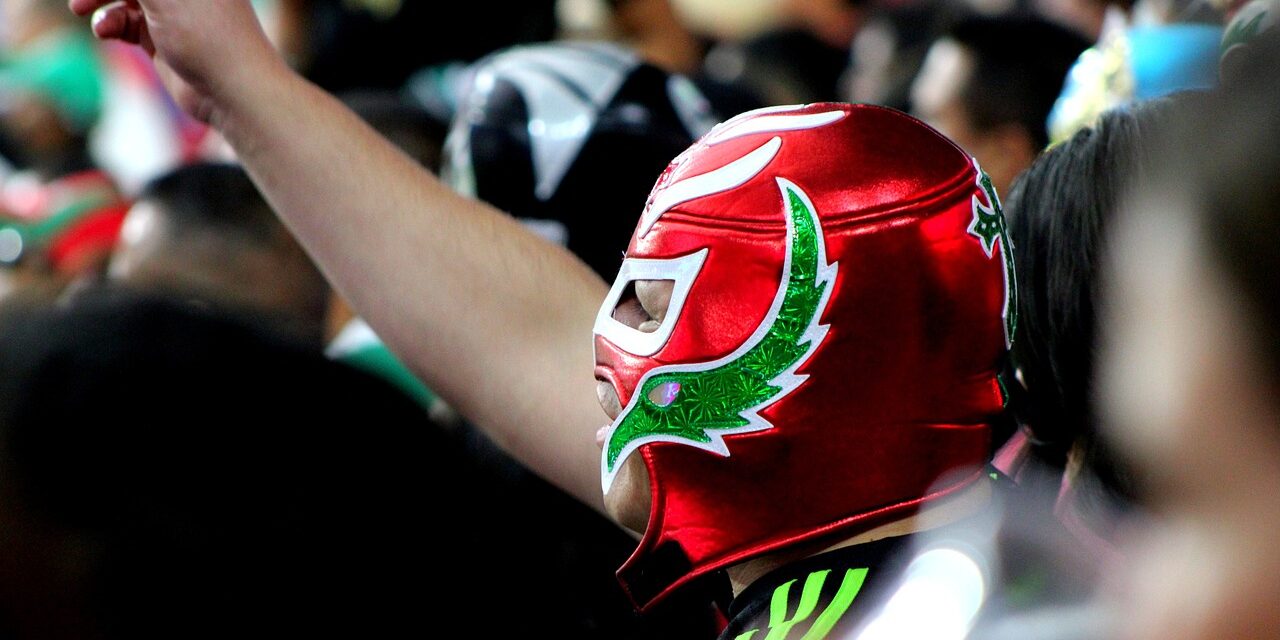As Mexicans gear up to celebrate Mexico’s Independence Day this Monday, marking 214 years since the Grito de Dolores ignited the revolution against Spanish rule, the spirit of the nation is reflected in the lucha libre masks that embody Mexico’s enduring fighting spirit.
Mexico’s national day, like many others, is deeply rooted in struggle and resilience—principles that also define its homegrown wrestling style, lucha libre.
Grito de Dolores
The most significant of all festivities is the President of Mexico’s Grito Mexicano, or Mexican shout, on the eve of Independence Day.
This tradition traces its roots to the pivotal moment that ignited the Mexican War of Independence against Spain.
Frustrated by systemic discrimination against Mexican-born and indigenous citizens, as well as heavy taxes levied on the Mexican people, Roman Catholic priest Miguel Hidalgo planned a revolution against the colonial government.
In the early morning of September 16, 1810, Hidalgo rang the church bells of his congregation in the small town of Dolores. What followed was the Grito de Dolores, an impassioned speech that sparked the beginning of the open revolt against Spain.
In the decade that followed, Hidalgo and many fellow revolutionaries fell in the fight for freedom, but they were subsequently commemorated as founding fathers of Mexico, with the Grito de Dolores achieving the status of a national legend.
Every September 15, the President of Mexico reenacts this speech on the balcony of the National Palace in Mexico City.
The President rings the exact same bell Hidalgo used in 1810 before reciting the names of revolutionary leaders to the cheers of “Viva!” from the crowd. Celebratory fireworks follow to mark the start of Independence Day.
Mexico’s masks
Mascaras, or masks, are an integral part of lucha libre culture and are a highly recognizable symbol of Mexico’s sporting achievements. Lucha libre, which translates to “free fighting” in Spanish, is a form of professional wrestling that originated in Mexico.
While not directly associated with Independence Day, these masks represent the same fighting spirit that defines the national holiday.
Mexico is well known on the international stage for its contributions to sports, often showcasing an unbreakable competitive spirit.
Mexico’s sporting history dates back to ancient times when indigenous communities played various forms of the Mesoamerican ballgame, often using their hips to make contact with the ball.
In modern times, Mexico is known as a sporting giant. Appearing at every Olympic Games since 1924, Mexico has won 77 medals, 17 of which were in diving, with Osmar Olvera and Juan Celaya being their most recent diving medalists at the Paris 2024 Games.
Additionally, lucha libre is a distinctive Mexican style of professional wrestling characterized by acrobatic moves and colorful masks, blending competitive sports with entertainment.
Ultimately, Mexico’s representation in association football remains its most prominent sporting display on the international stage. The 1986 FIFA World Cup, hosted in Mexico, is often credited with popularizing the “wave” rhythms made by spectators in the stadium.
The FIFA 2026 World Cup is expected to be co-hosted by Mexico, Canada, and the United States, bringing the spotlight back to North America and the rich sporting culture of Mexico.
*Diplomatic Network (Asia) wishes Mexico a happy Independence Day. ¡Viva Mexico!







